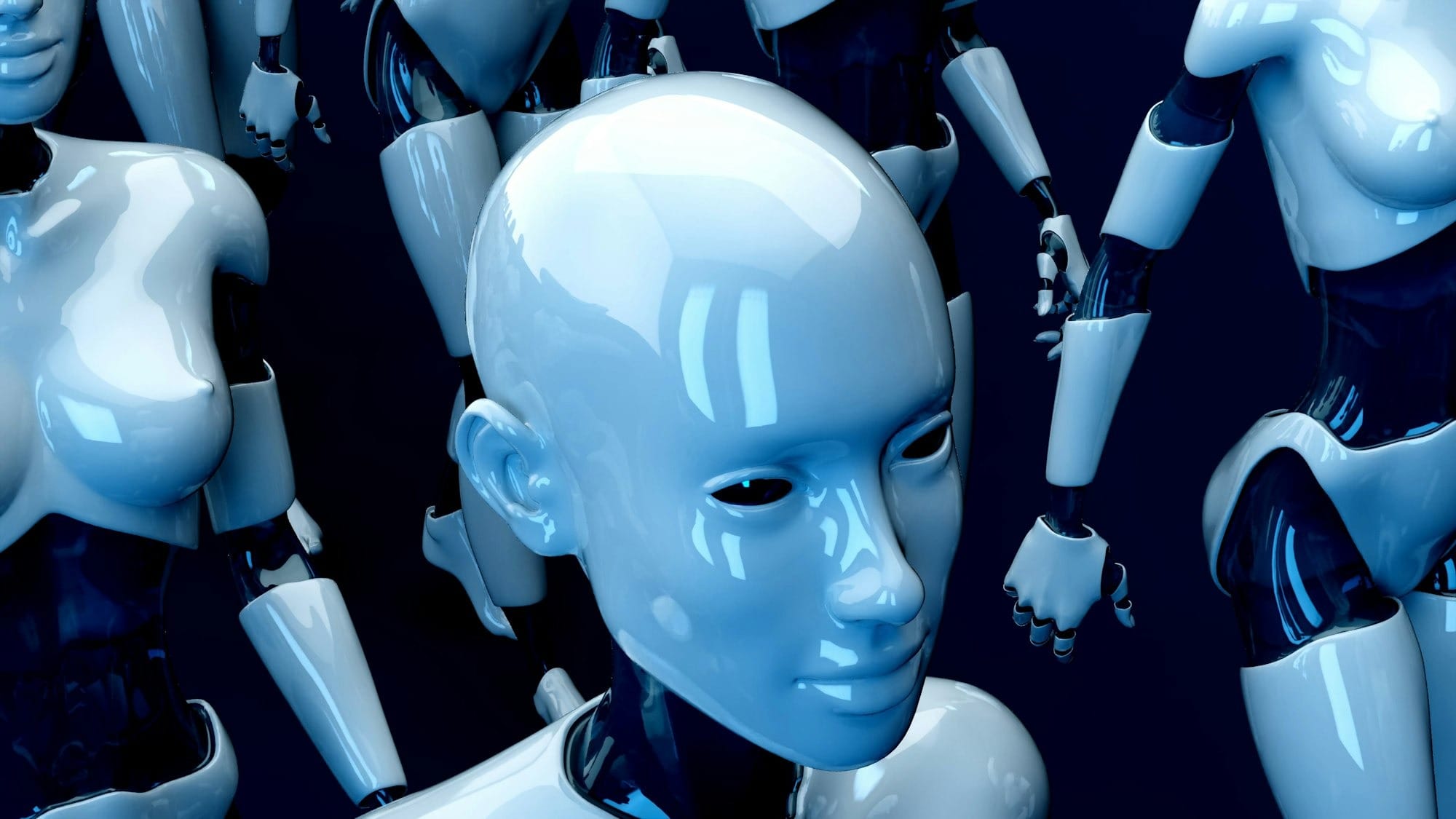The innovations in AI and Robotics that we loved at CES 2025
From home security to health, personal assistants to industrial robots, AI is making its mark in every aspect of daily life.
Last year, AI surged into the spotlight, transforming industries and integrating itself into nearly every corner of our lives. But if CES 2024 was the year AI showed its potential, the 2025 edition proved to be the year AI took the reins.
This year, companies pulled back the curtain on mind-blowing innovations, showcasing how artificial intelligence is not just adapting to our world but reshaping it in unexpected and fascinating ways.
From home security to health, personal assistants to industrial robots, AI is making its mark in every aspect of daily life.
Here’s a closer look at some of the standout AI-powered products unveiled at CES 2025, offering a glimpse into a future where machines not only assist us but learn, anticipate, and respond in ways that were arguably once the realm of science fiction.
LG's On-device AI Hub
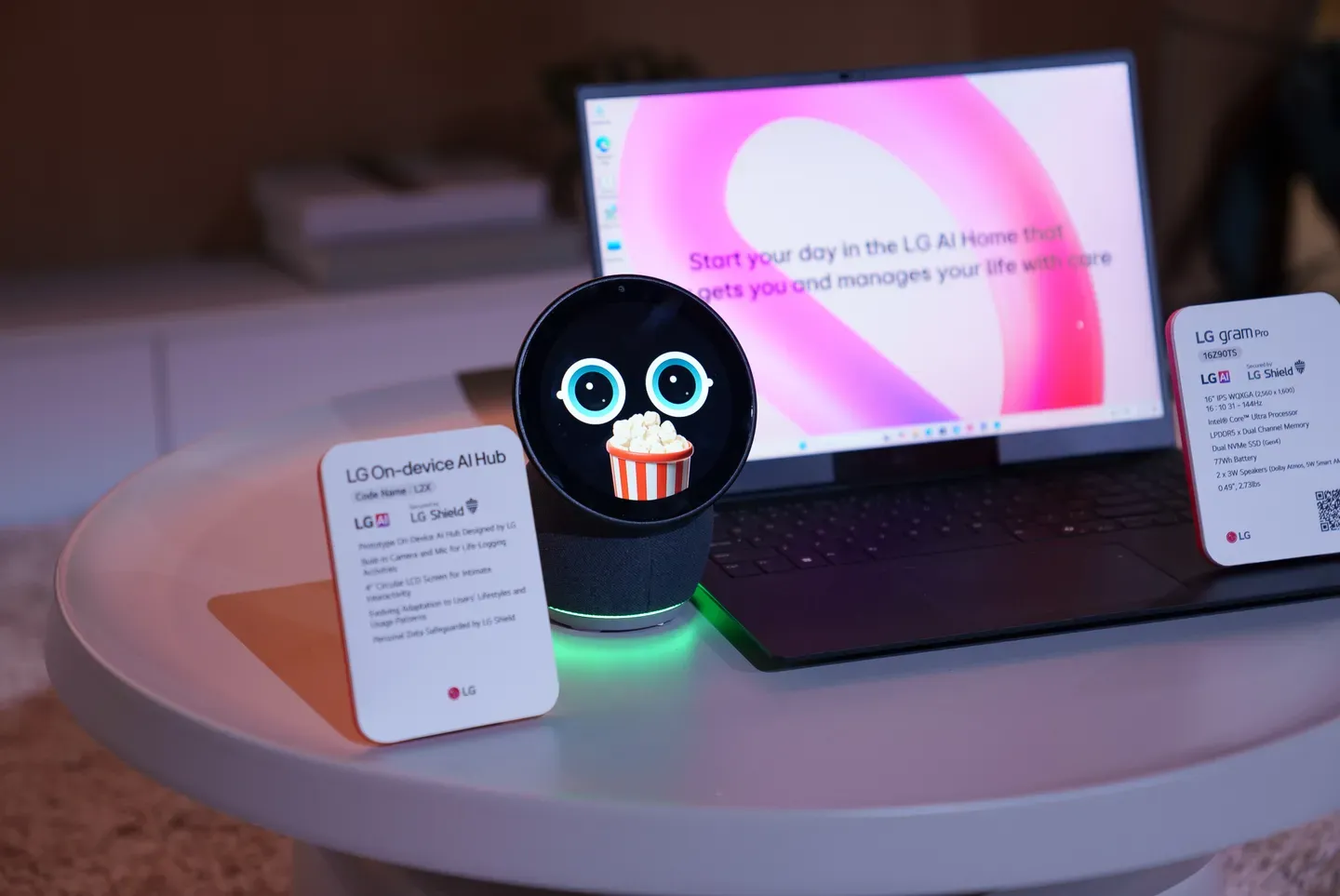
Starting with a company looking to make life even better at home is LG with its On-device AI Hub, showcased at CES 2025. This technology allows LG’s smart home ecosystem to adapt to your daily routines by securely processing data right on the device. With features like face and voice recognition, it provides personalized content and wellness insights tailored to your needs, all while ensuring your information stays private.
The On-device AI Hub helps create a smarter, more efficient home that learns and adjusts to your habits. Integrating with LG’s range of AI-powered appliances enables a connected living experience that becomes more intuitive over time. While availability details haven’t been released, LG’s AI-driven solutions promise to offer a more seamless and personalized home environment.
PaintCam Security Camera that attacks Intruders
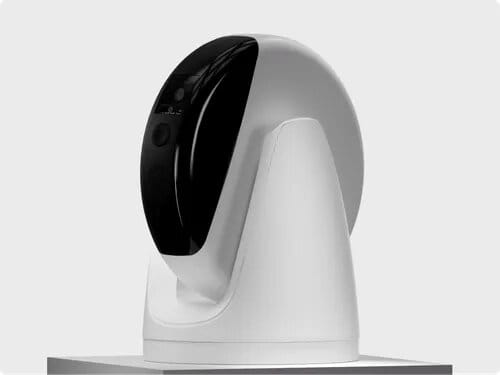
This company looking to bring a new twist to home security is Eve with its AI-powered PaintCam, showcased at CES 2025. While doorbell cameras are common, Eve’s system goes a step further by integrating AI features like pet detection, face recognition, and animal recognition. These AI capabilities allow the PaintCam to distinguish between humans, animals, and pets, offering a more targeted response for security.
The system doesn’t just monitor; it actively deters unwanted visitors. Depending on the model, it can shoot paintballs—some even containing capsaicin or UV paint—at intruders or wildlife. While it’s a unique approach, the use of AI ensures that the system can respond intelligently to different situations.
Available in several configurations, the PaintCam offers a novel way to use AI in security, though specific availability details are yet to be announced.
The Smart DoorBox.ai
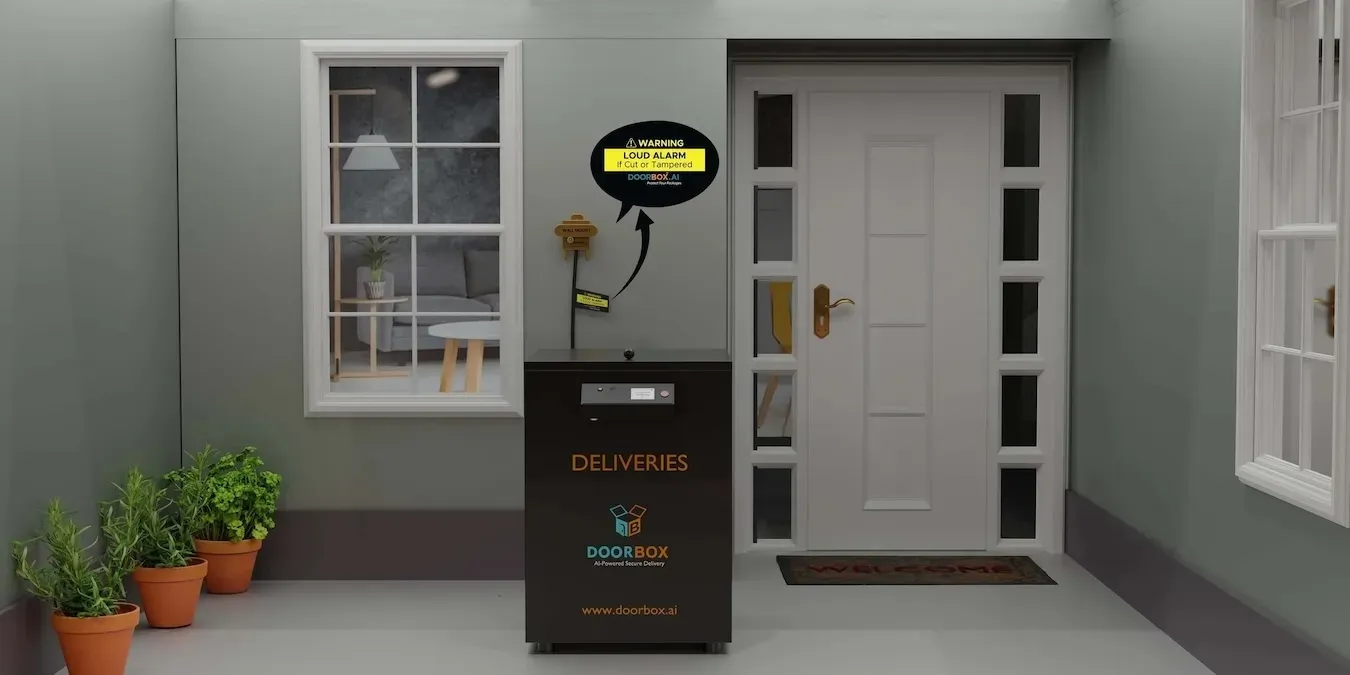
Still on security at CES 2025, DoorBox introduced its latest innovation, the Smart DoorBox.ai, a theft-proof package delivery system powered by AI.
Its purpose is to protect all your deliveries even when you're not home. First off, the AI-powered automatic unlocking mechanism detects when a package is delivered. The box is a steel cable that can be tethered to stationary objects, withstanding over 800 pounds of force, so it's highly unlikely someone breaks into it.
But even if someone were to try, it's also fitted with an automatic 125-decibel alarm that sounds if tampered with, notifying the user via the mobile app. For context, a shotgun firing next to you or a jet taking off is at about 130 decibels and this is just barely below that.
That aside, the Smart DoorBox.ai also comes with additional features like live camera feeds for monitoring deliveries and remote locking/unlocking via the app. Doorbox claims it can hold three to five medium-sized packages.
It's priced at $400 for the metal version and $300 for the plastic one, with a $20 monthly subscription fee for the app.
Jennie The Robotic Companion

Tombot also introduced Jennie, an adorable AI-powered robotic pet designed to provide companionship for those dealing with cognitive health challenges like dementia or depression.
Jennie is a small, lifelike robotic dog that mimics the sounds and movements of a real puppy, responding to voice commands and touch with AI-generated barks and "puppy sounds."
The dog's AI enables it to offer comfort and reduce feelings of loneliness, especially for seniors and those facing mental health struggles. Powered by a rechargeable battery and controllable through a smartphone app, Jennie is an accessible alternative to real pets. Tombot also aims to make Jennie the first FDA-registered robotic puppy as a medical device for use in hospitals and care facilities.
Apollo Robot
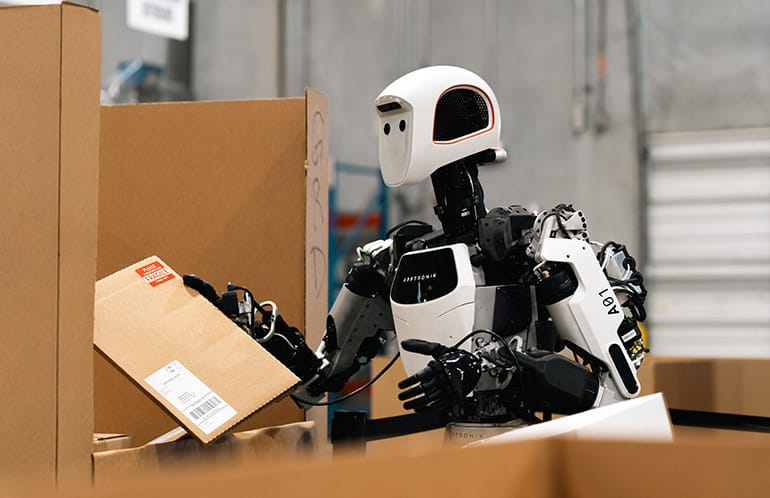
But, if pets aren't what you're at CES 2025 for, not a problem. Apptronik has something a bit more human-like. The company showcased its Apollo robot, a humanoid designed for industrial applications. With a friendly, approachable design, Apollo stands apart from many other robots in the market, which tend to have a more sterile or utilitarian look.
Apollo was demonstrated performing basic pick-and-place tasks, but the company claims it’s built for more advanced automation in factory settings. The robot is already being tested in real-world environments, with Apptronik starting factory pilots with companies like Mercedes. While the version shown at CES was a limited demo, the fully autonomous Apollo is expected to play a role in improving efficiency in industrial operations soon.
Right now, Apptronik claims the robot can last up to 4 hours per battery pack and it's fully modular, meaning it can be mounted on a stand or allowed to move around on its own two feet.

Ballie, A Personal Home Assistant
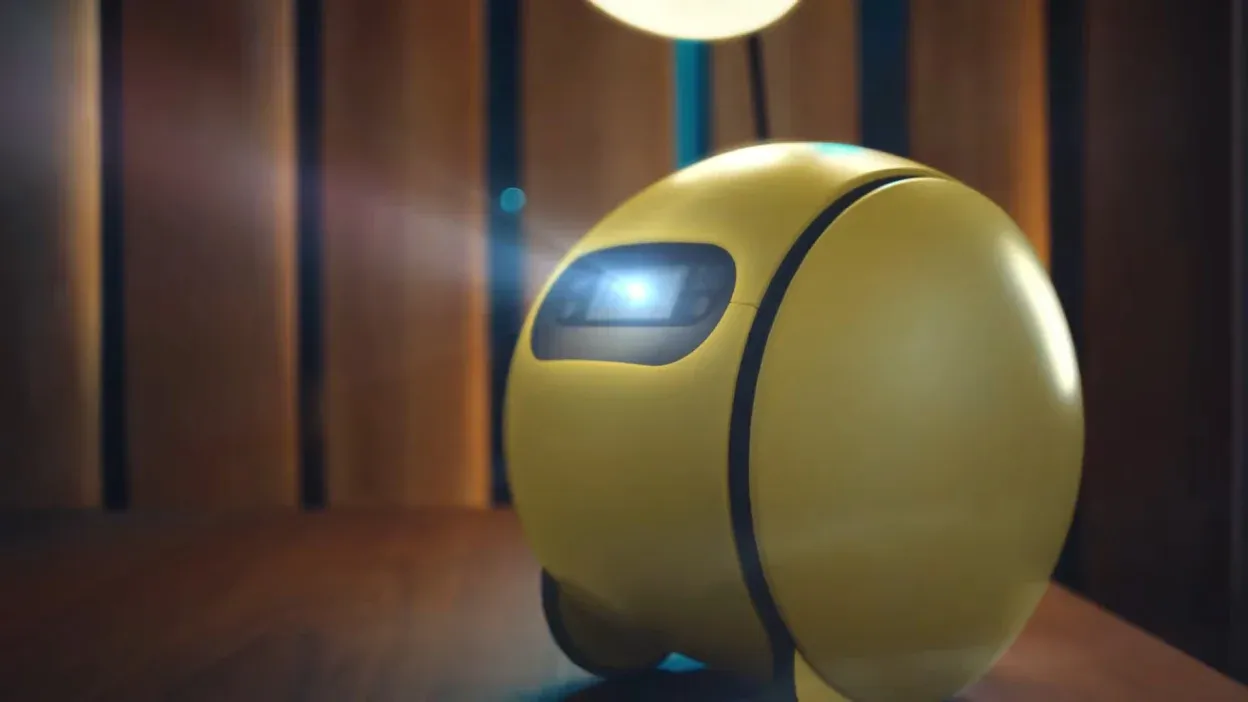
At CES 2025, Samsung made some key updates on its Ballie personal robot, which generated a lot of buzz at CES 2024. While it didn’t dominate the spotlight this year, Samsung confirmed that Ballie should be available in the next six months. Ballie’s evolution from a 3D-printed concept at CES 2020 to a fully functional prototype last year has been significant. In 2024, it could follow people, project information, and interact with devices through Samsung’s SmartThings platform. This year, it was demonstrated in real-time, showcasing its ability to control home devices and display virtual buttons on the floor.
Though there are still questions about pricing and full availability, Samsung's commitment to launching Ballie soon suggests that the robot is inching closer to becoming a viable consumer product. With each appearance, it becomes more refined, integrating AI to perform a variety of tasks in the home. While home robots have struggled to gain widespread adoption, Samsung’s push for Ballie could mark a new step in making these robots more practical and accessible for users.
Conclusion
As AI continues to evolve, its applications in consumer technology are becoming increasingly diverse and practical. From enhancing home security to providing personalized experiences and even companionship, the innovations at CES 2025 show that AI is rapidly shaping the future of everyday life.
With each new advancement, companies are redefining what AI can do and making it more accessible and integrated into our daily routines.
It’s clear that AI is here to stay, and as these products become more refined, we can expect even more exciting developments in the years to come.


